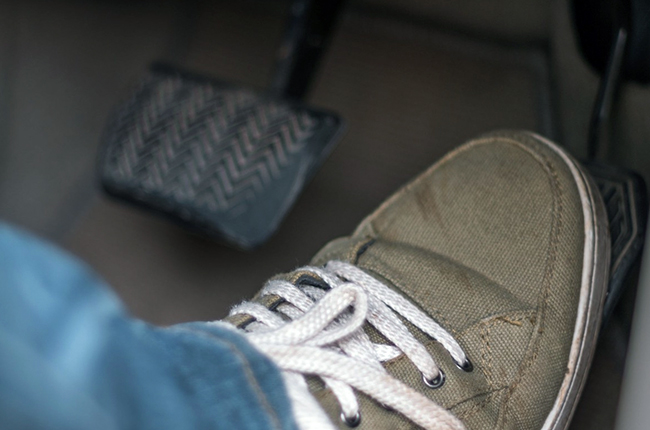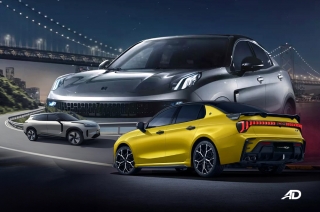
You can’t expect to get cheap fuel for the whole year as the price of crude oil is dictated by numerous factors such as the global demand, limited oil production, and the continuing political instability in some areas. So how can we fight back? Well, it’s just a matter of making use of our resources more wisely. To maximize every drop, here are our top five tips to help you get the most out of your vehicle.
Proper Maintenance

Preventive maintenance not only makes your car last for all the years of driving but it also brings out the best performance-efficiency it can deliver to the owner. A well-maintained vehicle means it has gone through a scheduled proper oil change, filter replacement, and tune-ups for an extra four percent of fuel savings without any performance loss.
While some people would recommend not using the air-conditioning unit of your car, we see it as an impractical solution. Instead, have your aircon cleaned and properly maintained to give you the best cabin comfort without having to turn the thermostat into full-blast which then consumes more fuel.
Remember, your car’s engine powers more than just your drive wheels. Keeping on top of your car’s maintenance schedule will help keep these systems running smoothly, and keep your car car from guzzling fuel.
Check your tire pressure

Did you know that a tire underinflated by even just one PSI can consume an extra three percent of fuel? This is because it increases rolling resistance and thereby requires the engine to rev harder to attain a given speed. The practice of checking your tires at least once a week is recommended. Some people think it’s a bit of a chore, but investing in a tire monitoring system could easily solve the problem. Additionally, you may also opt to replace old tires with ‘green’ tires that offer a low-rolling resistance rating per kilometer. However, if you do go this route, you will have to rewire the way you drive as you will trade grip in exchange for lower rolling resistance.
Conserve Momentum

Learning the basics of coasting is an additional skill though it will reap a lot of fuel savings. The first rule of thumb is to anticipate and avoid unnecessary abrupt braking, as the key to saving fuel is maximizing energy usage. Yet to be safe, always keep a safe distance from the car ahead of you.
Another driving style to learn is patience. While people on the road tend to rev just as hard and then learning that they need to stop or reduce their speed will amount to energy losses. Try driving your car in a more relaxed manner without going further than 2,000 rpm on the tachometer until you reach your cruising speed. On the expressway, some drivers opt to rev until 2,500 rpm to balance acceleration and fuel economy.
Also, always use a higher gear as much as the engine permits without allowing it to stall. Newer cars have transmissions with more than five gears allowing the vehicle to cruise more happily with its taller gear ratio while lowering engine rpm, thereby, decreasing fuel consumption. If you own an older car or a late 90s or early 2000s automatic vehicle, make sure you activate the overdrive gear when you're cruising down the expressway to get the engine rpm down.
Avoid unnecessary accessories and baggage

Accessories are a welcome addition to making your car more versatile. However, some parts may also contribute to an increase in fuel consumption such as the roof rack. When not in use, it is best to remove them because they create drag on your car which consumes about five percent more fuel on every fill-up.
As for carrying unnecessary baggage, an extra 45 kg may actually drop your fuel efficiency by two percent. So, if possible, clear those from your luggage compartment to gain maximum yields in fuel figures.
In the case of unnecessary accessories, you might want to rethink sticking those gaudy fake hood vents and air vortex generators on the roof. If you don’t have the skills and know-how of Adrian Newey or access to a wind tunnel, it’s best to keep your car’s exterior stock to ensure its aerodynamics aren’t messed with.
Plan your trips ahead

Combining eco-driving style and proper planning is always a win-win scenario. It is best to consult a map to plan out every trip to make every commute as fast and efficient as possible. This reduces driving time even if it means having to stop for a dozen of errands in one single journey. Just be mindful to avoid the rush hour as much as possible.
Additionally, with the use of mobile phone applications such as Waze, we can actually get traffic reports on the fly. If the traffic is terrible, try staying at the office for an extra bit of time until the congestion has loosened up. Sometimes, the time you lose in traffic is equivalent to the time needed to learn an extra skill or burn those calories with some fitness running. Your trip will be less hampered by stop-start traffic, and you won’t lose your cool on the road, a win-win.
Bonus tip: Be a consistent driver
Studies have shown that most vehicles today are fuel-efficient at speeds of 80 to 90 km/h with fuel efficiency beginning to decrease as speeds increase beyond 90 km/h, as aerodynamic drag increases and the engine has to work harder. Results may vary between different vehicle models of course, but, by staying at a constant speed, you will get the most out of your fuel.
Consistency in the way you speed up and slow down will also help save you a few pesos at the pump. As we’ve mentioned earlier, by tempering your foot and conserving momentum your car’s engine won’t use fuel when you stop. Also, by letting your car get to speed gradually, you won’t use an unnecessary amount of fuel to get to cruising speed.
To wrap things up, you may or may not do this daily, but it takes constant practice to change the old driving habit that robs your fuel and wallet. Like anyone advising you how to save money; it takes time, dedication, and discipline to save up. Yet, we assure you that these five great tips will help you start your way into a safer and more economical driver in the days to come.
Sometimes it’s just time to upgrade your ride
With all that being said, there are times when your car is simply too old to keep up with the fuel efficiency figures of modern-day vehicles. In that case, you’re really left with little choice but to upgrade to a brand-new car. And if fuel efficiency is really your number one priority, well then maybe an EV or hybrid would be best for you.
Speaking of which, you can check out the wide range of fuel-efficient vehicles on AutoDeal.com.ph. All you have to do is find the car you’re looking for, hit “Get Quote,” and agents from dealers near you will send you an official quote in a matter of minutes. It’s really that easy. So why not kickstart your car-buying journey with us today?
Latest Features
-
An all-electric future: The Porsche Macan Electric / Featured Article
Porsche’s Macan goes all-electric; it’s a new beast with an electrified heart, yet unmistakably Porsche in performance and spirit.
-
Which Kia should I buy? / Featured Article
We’re here to help you decide which Kia vehicle is best for you, whether it’s a sedan, crossover, or minivan.
-
Why Lynk & Co is a good option for luxury car buyers / Featured Article
Lynk & Co offers premium value for those exploring the luxury market.
Popular Articles
-
Electric Vehicles in the Philippines for under P1 million
Jerome Tresvalles · Aug 19, 2025
-
Top 3 Cars For Every Lifestyle—What Cars Are Right For You? | Behind a Desk
Caco Tirona · Apr 24, 2024
-
5 Tips to Maximize Fuel Efficiency
Jerome Tresvalles · Sep 09, 2024
-
Five driving habits that are draining your fuel tank
Jerome Tresvalles · Jun 24, 2025
-
Can engine braking harm your engine?
Jerome Tresvalles · Sep 11, 2025
-
Do electric cars even need maintenance?
Jerome Tresvalles · Oct 23, 2024
-
Best vehicles for an active outdoor lifestyle
Shaynah Miranda · Jul 25, 2024
-
How to drive different types of vehicle transmissions
May 23, 2024
-
5 easy ways to keep your car interior clean
Allysa Mae Zulueta · Nov 15, 2021
-
How to survive Metro Manila traffic
Earl Lee · Aug 16, 2022




